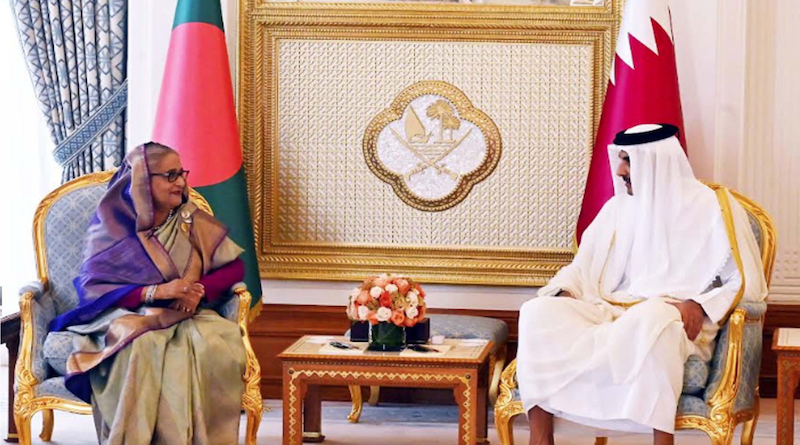Averting A Civil War In Bangladesh: Critical Role Of International Intervention And Qatar’s Potential Mediation – OpEd
Bangladesh, a vibrant South Asian country, finds itself in the heart of a burgeoning political crisis. As the nation prepares for national elections scheduled for late 2023 or early 2024, escalating violence and civil discord are cause for concern. At this critical juncture, immediate international attention and proactive intervention are required.
The nation seems to be inching towards a full-scale civil war, a conflict that would threaten peace and stability in the South Asian region, provoke a significant refugee influx to Western countries, and result in a substantial loss of human life. Besides, the instability and conflict that could ensue may take decades to resolve, consuming significant international resources. The human cost of civil conflict in Bangladesh would primarily be borne by its people.
However, it also threatens to undo half a century of investment by development partners like the USA and the UK in establishing peace, rule of law, and democracy in Bangladesh.
Several fundamental factors necessary for a democratic electoral process are currently threatened in Bangladesh:
- The independence of the current electoral body is in question, as it appears to be influenced by the ruling political party, thereby compromising its impartiality.
- The freedom to express political opinions and to conduct peaceful political rallies is under threat.
- An imbalance in access to media and campaign resources currently exists, favouring specific political entities.
- The role of the media in providing unbiased coverage and reporting is at stake, thus raising concerns about the credibility of the electoral process.
- The acceptance of the election results by all parties is uncertain given the current political climate.
In light of these circumstances, a dialogue among the varied political factions is essential. However, there is little hope for such a dialogue under the current leadership, including Sheikh Hasina and other political figures.
Nobel laureate Professor Yunus emerges as a potential figure to steward an interim government. Despite resistance from Hasina and her associates, Yunus’s international reputation as a champion for the disadvantaged could lend credibility and stability to a transitional government.
The proposed interim government would need the endorsement of international allies like the USA, UK, Canada, the European Union, Australia, and New Zealand. Their support will be crucial in maintaining equilibrium during this critical transitional period.
As Bangladesh teeters on the brink of a political crisis, a platform for dialogue is crucial. Here, Qatar, under the leadership of Sheikh Tamim bin Hamad Al Thani, could play a pivotal role in hosting peace talks.
Qatar’s history as a neutral mediator, evidenced by its role in facilitating peace negotiations in conflicts such as the Afghan crisis, makes it an excellent choice. Its neutrality, reinforced by an independent foreign policy that engages with all parties, regardless of ideological differences, inspires trust. Furthermore, being one of the wealthiest nations per capita due to its vast natural gas reserves, Qatar has the necessary resources to host and support negotiations.
This financial capacity strengthens its role as a facilitator. Qatar’s objective of influencing regional affairs and ensuring its own security can be furthered by serving as a mediator. Its international visibility and credibility, boosted by its global media network Al Jazeera and its hosting of the 2022 FIFA World Cup, enhance its capacity to serve as a mediator on the global stage. Qatar’s consistent neutrality in regional conflicts, even when other Gulf nations have taken sides, underscores its position as a reliable mediator. This neutrality allows conflicting parties to trust that their interests will be fairly represented in talks. Qatar’s broad diplomatic connections have enabled it to bring a diverse range of parties to the negotiation table, demonstrating its ability to engage with all sides, regardless of their ideological positions.
Teetering on the brink of civil war, Bangladesh requires immediate international intervention and a neutral platform for dialogue. Qatar, with its history of mediation in international conflicts and abundant resources, can play an instrumental role in facilitating peace talks and help Bangladesh avert a potential crisis. The pressing need for international actors to support and encourage dialogue among the nation’s political leaders has never been more critical.


Do you even know what is civil war?
The constitution does not allow for a caretaker government. There is no legal framework to implement one and if it was implemented the results could be challenged in court. So why would the Qataris suggest such a move knowing this? There must be another way?